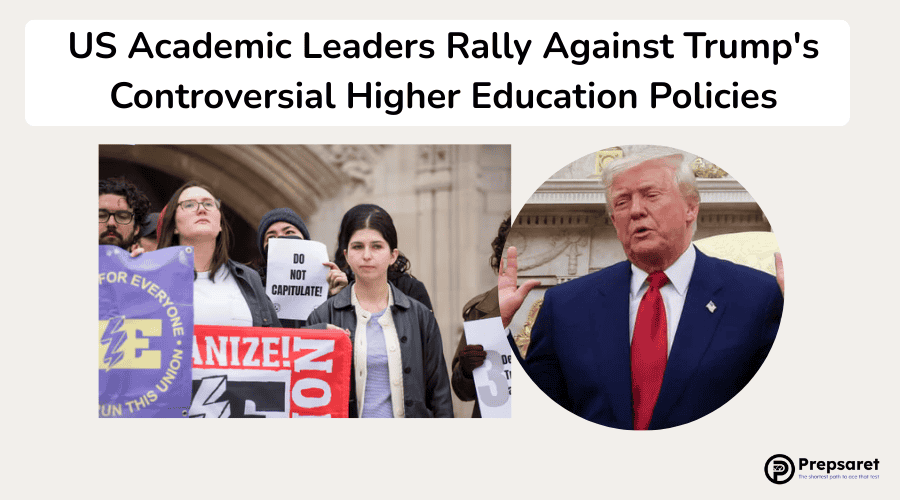Key Takeaways
- More than 170 U.S. university leaders have condemned the Trump administration’s interference in academic institutions.
- A collective statement accuses the government of political overreach and threats to academic freedom.
- Harvard and other institutions are pushing back legally and publicly against federal demands.
- Funding freezes, threats to tax-exempt status, and oversight pressures are central to the dispute.
- Higher education leaders are coordinating broader efforts to defend institutional autonomy.
In a rare and forceful display of unity, over 170 presidents of U.S. colleges, universities, and scholarly societies have publicly opposed the Trump administration’s recent actions targeting higher education.
The move marks a significant turning point in the escalating conflict between academia and the federal government, as institutions confront what they call a campaign of political overreach and ideological interference.
Widespread Condemnation of Government Intrusion
The joint statement—endorsed by leaders from institutions including Princeton, Brown, Harvard, the University of Hawaii, and Connecticut State Community College—was released Tuesday by the American Association of Colleges and Universities (AAC&U).
The signatories denounced what they described as “unprecedented government overreach and political interference now endangering American higher education.”
“We are open to constructive reform and do not oppose legitimate government oversight,” the statement reads. “However, we must oppose undue government intrusion in the lives of those who learn, live, and work on our campuses.”
This collective stand follows months of growing tension. Since taking office in January, President Trump has intensified scrutiny of universities over a range of issues, including their handling of pro-Palestinian protests, antisemitism allegations, diversity and inclusion programs, and faculty governance.
Legal and Institutional Pushback
While Harvard University has taken the lead by filing a federal lawsuit against the administration, it is not alone in resisting.
The government has frozen billions in federal funding and threatened other institutions, such as Columbia, Cornell, Northwestern, Brown, Princeton, and the University of Pennsylvania, with similar punitive measures unless they comply with sweeping demands.
These measures include revoking tax-exempt status, removing academic departments from faculty control, and allowing federal oversight of campus discourse and hiring practices. Some universities, like Columbia, have accepted certain terms to restore funding, but did not sign the joint statement.
The AAC&U, along with the American Academy of Arts and Sciences, convened university leaders in recent weeks to coordinate responses.
AAC&U President Lynn Pasquerella noted that this moment required a unified message. “Campus leaders have had a lot to deal with… but there was widespread agreement on the need to take a collective stand,” she said.
Find Out: Colleges That Accept the GED Credential
A Broader Defense of Academic Freedom
Higher education leaders argue that the administration’s tactics not only undermine institutional autonomy but also threaten academic inquiry and open dialogue on campus.
The joint statement emphasizes the universities’ role as centers of open inquiry and calls for the preservation of constitutional protections in education.
As the administration continues its campaign, faculty groups and higher education associations have begun organizing mutual defense initiatives and exploring further legal options.
This broad, organized resistance marks one of the most unified defenses of academic independence in recent U.S. history—underscoring what many see as a critical moment for the future of higher education in the country.
Also in the News:

